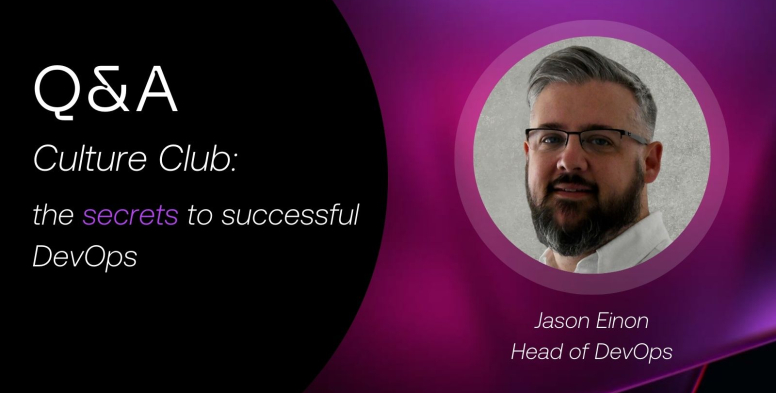
A world-class product needs a world-class team. And when it comes to delivering the best for our customers, we’ve assembled a growing team of experts who combine to showcase an agile, collaborative approach to product development and delivery.
The successful delivery of Send Underwriting Workbench depends heavily on the strong communication, and effective tools we have established between our development and operations teams. It’s vital that these two areas can work together closely to ensure customer needs are being met, improvements are prioritised, and the product is developed and delivered quickly and efficiently in line with these requirements.
This level of seamless communication and collaboration between the teams is driven by our Head of DevOps, Jason Einon. Jason has been with Send for two years, working in this vital role to ensure our customers benefit from a product that is tailored to their needs, delivered by a team of experts.
We talked to Jason to find out more about the DevOps role, and why it’s so important to our customers.
Hi Jason, we hear the term “DevOps” a lot in technology and software development, but what does it actually mean?
The term has really become popularised over the past 5-10 years, it’s essentially a role that sits between the development and operations teams. The developers are in charge of building the product, and the operations team leads deployment. The DevOps function sits between the two, and is responsible for ensuring these two areas are collaborating, introducing tools, processes and methodologies to balance the business and customer needs throughout the development lifecycle.
There’s a fine balance between the continuous development of a product and the stability of the software already deployed to customers, this needs to be carefully maintained, ensuring each team’s goals and objectives are preserved.
In my role as Head of DevOps, I lead a team of five, who in turn support Send’s developers and IT operations experts. It’s my job to ensure we have effective tools to ease communication and unblock any issues between the two teams. I explore the ways in which we can automate some of our own processes to facilitate this, integration for instance, and embed the tools that support greater communication, whilst fostering a strong culture of collaboration and learning.
How has this role evolved in business?
Previously, the two crucial elements; developers and operational IT remained separate entities. This is still the case in many larger organisations. This siloed approach, however, can be problematic and lead to breakdowns in communication and ultimately, products that are slow to evolve, and fall short of customer expectations.
The DevOps role evolved to manage the, sometimes competing, priorities of the two functions and ensuring they are working together with the same end-goal in mind.
As software development has evolved, forward-thinking, agile businesses now prefer to follow what Jeff Bezos terms the “two-pizza team rule”. Essentially, the smaller the team, the better it is for collaboration. These smaller teams of experts can work more quickly and deliver better results, but they still cannot work in isolation. The DevOps role has evolved to manage and facilitate those relationships.
How does a robust approach to DevOps benefit the customer?
The DevOps function is critical in helping customers to gain and maintain a competitive edge with their products. It fuels business transformation, more than just delivering new features faster, it provides continuous value to customers by maintaining a continuous feedback loop.
Is culture an important factor in building this DevOps approach?
Absolutely. Culture is vital. This function thrives on a communicative and collaborative culture, where people can share ideas openly, and work together to find the right solutions for clients.
Businesses need to foster a culture that embraces learning and open feedback, teams need to be open to learning new things, exploring new ideas, and perhaps even questioning themselves.
All this needs to be done in a blameless culture. People need to be able to make mistakes, fail fast and ultimately feel they can make bold choices and try things without fear.
What is Send’s approach to DevOps?
At Send, we prioritise a needs-based approach when developing solutions that fit our customers vision. We are committed to providing our customers with an AI-driven SaaS product, that can help them make significant improvements to their processes every day. To achieve this, we place great emphasis on having an efficient DevOps function, where automation is a first-class citizen. By automating our processes, we can ensure that our teams can communicate and collaborate effectively to achieve our common goal of delivering superior products to our customers. This level of collaboration and communication is essential to the superior level of service we offer to our customers.
Everyone at Send is so invested in the potential of our product. From the founders to the developers, we all have a belief in what we can do for our customers.
The size and expertise across the team allows us to move quickly, helping our customers to stay ahead of the market, and the tools we use are specifically chosen to help bring our teams closer together.
If you’d like to connect with Jason, you can find him on LinkedIn here.